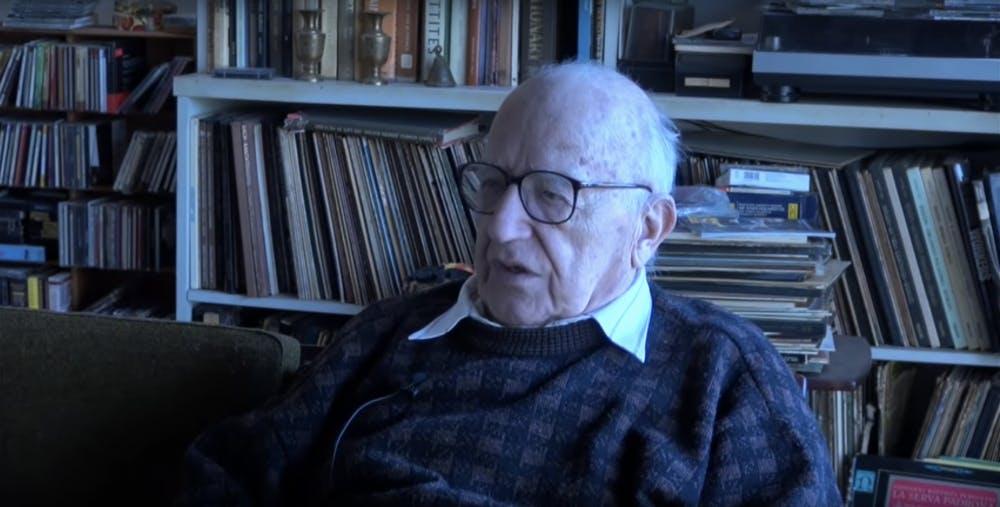Wharton emeritus professor, economist, and 1945 College graduate Edward S. Herman passed away on Nov. 11 in Penn Valley, Pa. at age 92.
Herman was well-known for co-authoring “Manufacturing Consent: The Political Economy of Mass Media” with 1949 College graduate and philosopher Noam Chomsky in 1988. The book claims that media forces in the United States are governed by “market forces, internalized assumptions and self-censorship."
"['Manufacturing Consent'] was a kind of bible of media criticism for a generation of dissident thinkers," wrote Matt Taibbi at the Rolling Stone.
In Herman's last piece published before his death in the socialist magazine The Monthly Review, he offered a scathing criticism of American media’s “fake news” attack on Russia and the United States’ dedication to Russophobia, noting various instances when The New York Times and other news outlets have produced "a steady flow of their own varied forms of fake news."
“Mainstream media fake news is especially likely where a party line is quickly formed on a topic, with any deviations therefore immediately dismissed as naïve, unpatriotic, or simply wrong,” Herman wrote.
Herman received both his bachelor's degree and master's degree in economics from Penn and became a professor in both Wharton and the Annenberg School for Communication in 1958, retiring as a professor emeritus in 1989.
In 1981, he published “Corporate Control, Corporate Power,” which investigated the influence of major corporations in America. And in 1991, he spoke about the Gulf War at a post-war teach-in held at the University.
“Would the President of the U.S. lie? The media pretends he wouldn't. The media tends to play easy and dumb,” Herman said referring to former president George H. W. Bush at the event.
Herman also participated in other events throughout his time at Penn. At a 1997 talk by Chomsky, he praised the independent bookstore House of Our Own Books, calling on students to "add your voice to the debate" to keep independent bookstores alive.
His work did not escape the eyes of critics, including some who, according to The Washington Post, accused him of sympathizing with genocidal regimes in writings on Cambodia and Rwanda.
“He was an inspiration to those lucky enough to know him personally but also to countless others who have been following in his footsteps in institutional analysis, media critique, exposing hypocrisy and lies, and to the many who recognize him as providing a model of integrity and understanding,” Chomsky said to the Independent.



